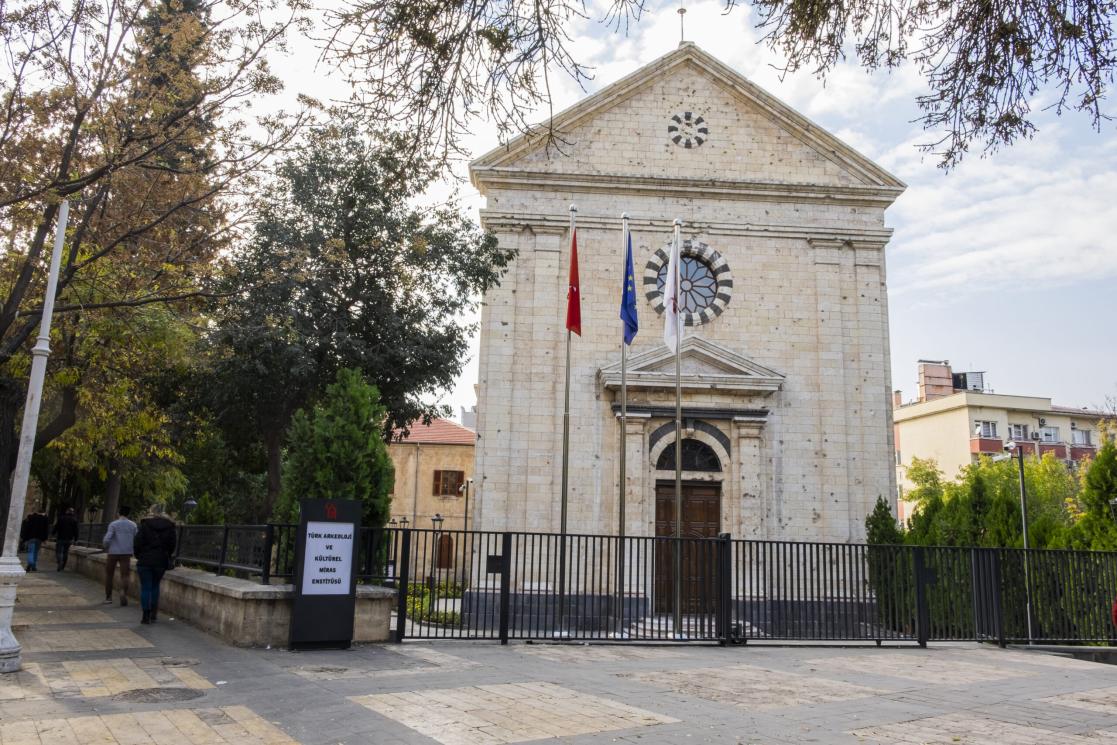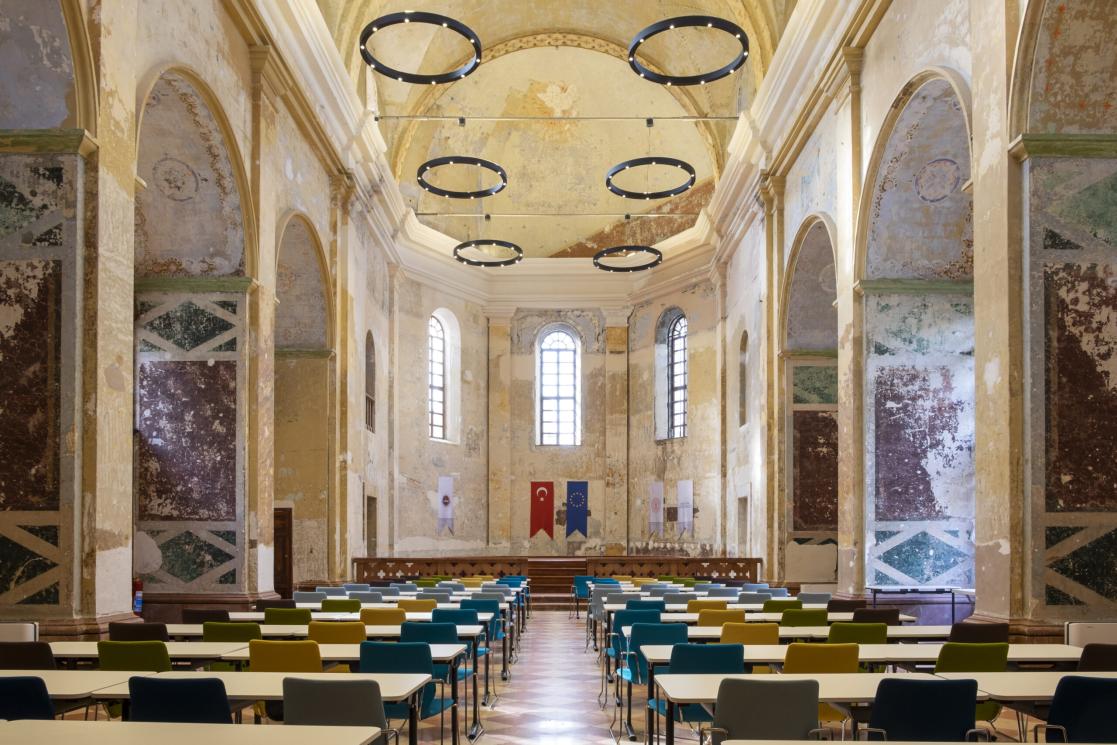'Centre' for Turkish Archaeology is Ready: The Turkish Archaeology and Cultural Heritage Institute is opening its doors on 25 October 2023 in Gaziantep
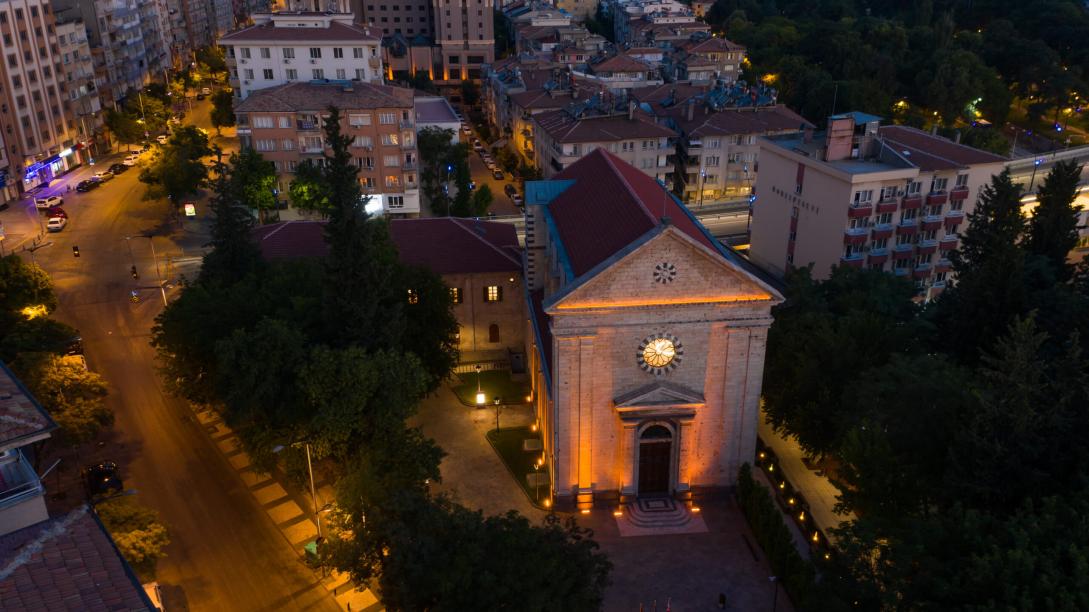
Kendirli Church and Latin School, built in 1860, was restored as the headquarters of the Turkish Archaeology and Cultural Heritage Institute with the support of the European Union. The project that helped establish the institute was implemented by the Ministry of Culture and Tourism, in close collaboration with the Metropolitan Municipality of Gaziantep.
The draft law that prepared the infrastructure of the institute as a foundation was approved by the Grand National Assembly of Türkiye on 8 March 2023. Some 450 scientists, experts, bureaucrats and artists competent in their fields, contributed to the establishment of the institute with their work and took part in its activities.
The Institute aims to carry out history and culture oriented scientific research in Turkish and Islamic archaeology and other relevant areas of science regarding archaeological and cultural heritage from prehistoric times up to our days, on the basis of shared accumulated knowledge and values of humanity. The institute will promote international cooperation amongst scientists, encouraging collaborations, partnerships with Turkish and foreign universities, institutes, and research centres. It will carry out joint projects with European archaeology institutes in the country reinforcing cooperation.
The institute includes an Archaeometry Laboratory, Archaeology Specialization Library, Turcology Library, an exhibition and conference hall, offices and activity areas.
The building that will host it has a sentimental value for the people of Gaziantep. It is from the balcony of the Latin School that Gazi Mustafa Kemal Atatürk, the founder of the Turkish Republic, addressed citizens in 1933 thanking them for their contribution for the war of independence.
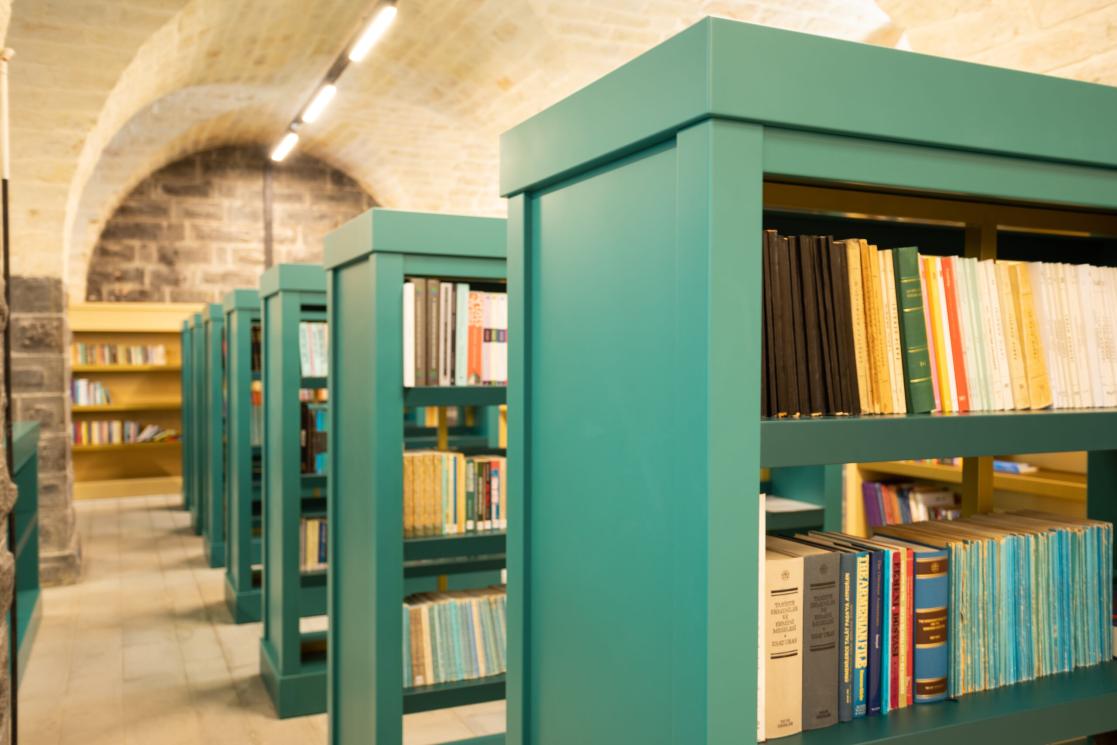
After Kendirli's allocation to the Turkish Archaeology and Cultural Heritage Institute, restoration work started in January 2019 and lasted two years. Several European archaeology institutes were studied and the Turkish model was designed. i.e. Institute’s internal organization, staffing, functions, duties, budget, roadmap for the future were all prepared by this project. In addition to restoration works, the below activities were carried out by the EU funded project:
Türkiye’s First 'Digital Archaeology Archive': Digitalization Studies
For the first time in the history of Turkish Archaeology, 1.400.000 documents - maps, excavation field notes, official documents - were scanned and one million copies were archived from the archives of the Ministry of Culture and Tourism in order to preserve and present them to researchers and the public in a qualified database. 50.000 documents and
2.100 photographs were compiled from the state and Ottoman archives. Scanning of the Turkish Historical Society, Ministry of Foreign Affairs and Ankara University archives have also been completed.
The First Publication Series Covering All Periods of Turkish Archaeology
Within the scope of publication activities, an important indicator of existing in the international scientific arena, 27 books were published by prominent European and Turkish archaeologists, scientists and academics. Of these, 15 are new books and 12 are translations. The translated books, determined by the Editorial Board, are crucial from the viewpoint of Turkish and Islamic Archaeology not just for experts but also for interested readers. The 15 newly published books will be key reference sources for foreign experts. Among the Institute's publications, the reports of the two Müze-i Hümayun (the first museum established by the Ottoman Empire in 1869) excavations written in French by Osman Hamdi Bey, Ottoman Empire’s first modern archaeologist also known as the founding father of archaeology and museology sciences in Türkiye meets readers in Turkish for the first time.
Library
One of the most important works carried out for the Institute is the Specialization Library and Turkology Library. More than 50,000 digital resources have been compiled for the Turkology Library. For the Specialized Library, collaborations with European archaeology institutes and resource scanning continues. Digital access will be provided to the libraries of archaeology institutes in Europe.
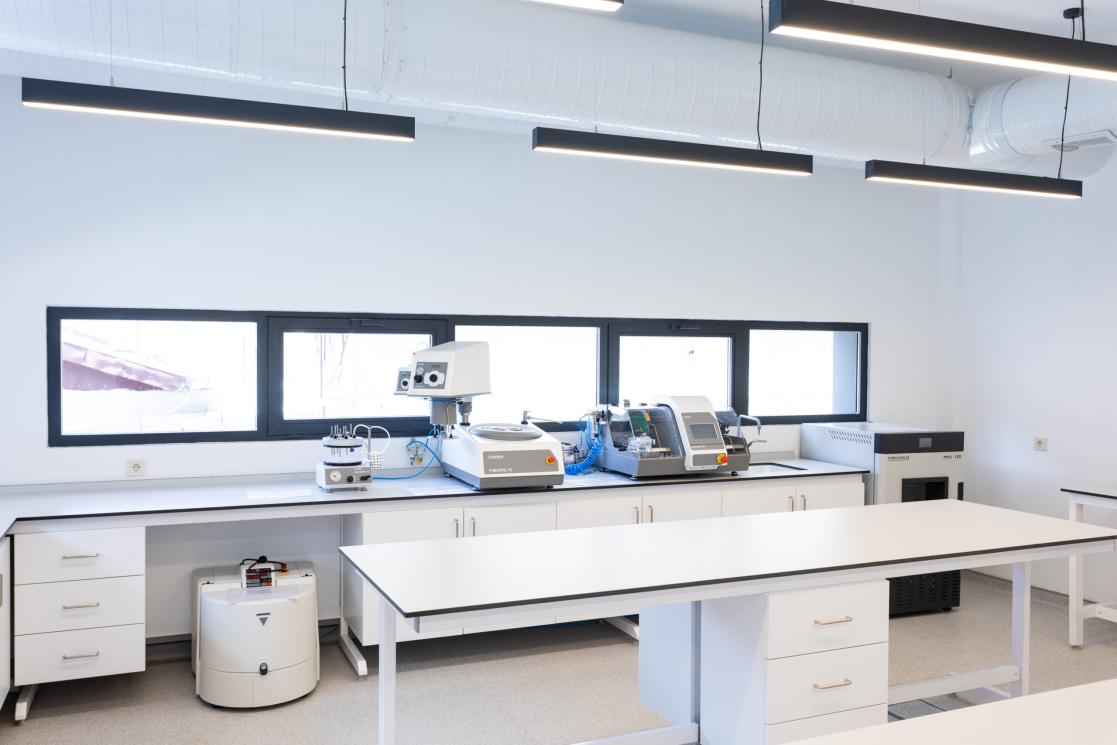
Refereed Journal
During project implementation, the institute published its first ever-refereed journal “TARE” and shared it with the academic world and other archaelogy institutes. This is an important contribution to intellectual and scientific life. Since then, two other editions were prepared and printed.
Training Programs
During the project, trainings and workshops were organized by competent experts from the EU and Turkiye for doctoral students, public personnel, civil society members as potential candidates for the Institute in the future. Trainings were also given to students hear their expectations from the newly established institute. Live broadcasts on archaeology were made on the social media account of the institute with the participation of expert scientists.
Archaeological Tour Routes
In order to raise interest in archaeology, culture, history, to instill public awareness for culture and nature conservation, and to produce new and qualified alternatives for archaeological tour routes; 43 tour routes were prepared. Three of these are international and can be implemented as pilots as they cover Anatolia, the Balkans and Central Asia. A special book containing the details of these routes is published.
Archaeometry Laboratory
This is the first Institute in the country that contains an Archaeometry Laboratory. The lab aims to be a centre that supports the teaching of analytical techniques in archaeometric research and carry out qualified contribution to the existing infrastructure by working with the restoration and conservation units. It also aims to support archaeology with archaeometric publications and enable domestic analysis of samples obtained from archaeological excavations. This would facilitate scientific research.
